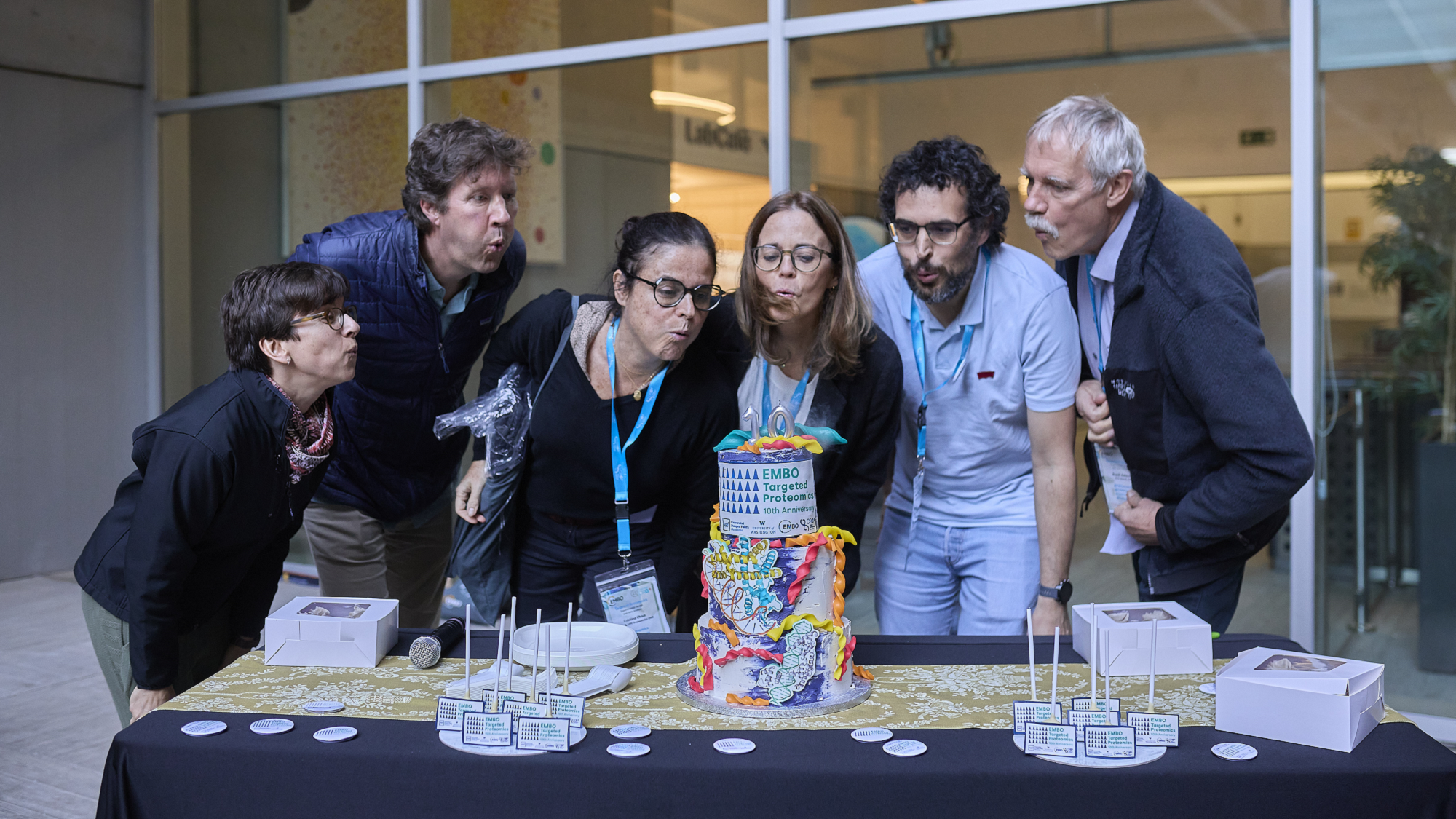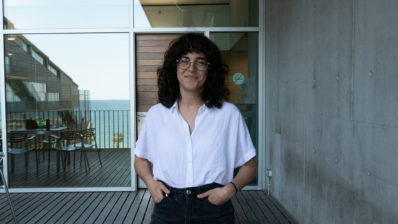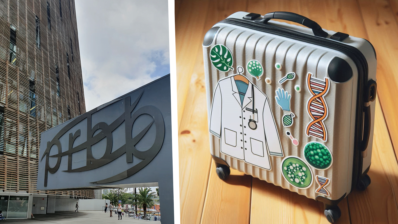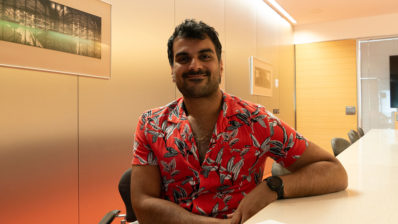On November 17, the participants of the “EMBO Practical Course on Targeted Proteomics” celebrated the end of the course with a big cake. This celebration had a special reason: the proteomics service at the Barcelona Biomedical Research Park (PRBB) – a mixed unit of the Centre for Genomic Regulation (CRG) and the Department of Medicine and Life Sciences (MELIS-UPF) – celebrated 10 years of its annual proteomics courses, where some 500 people have already participated.
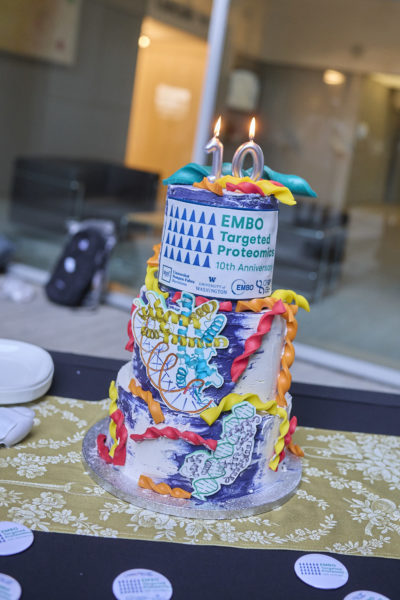
“We started the courses because we had deep know-how and experience in optimizing the results of proteomics experiments. Our goal was to share that knowledge with researchers. We believe that with adequate training researchers can ask more incisive questions, know which are the most appropriate experiments and, ultimately, maximize the benefits of proteomics techniques for biomedical research,” says Eduard Sabidó, head of the service.
Developing and offering these trainings has allowed the team the ability to attract trainers and students from around the world, promoting networking, mutual interaction, and establishing an epicenter of knowledge in proteomics at a local, national and international level.
The service organizes two annual courses:
- “Courses@CRG: Advanced Proteomics Course”, part of the Courses@CRG series and hosting 16 to 20 participants. It attracts professionals from all over Europe.
- “EMBO Practical Course on Targeted Proteomics”, initially organized in collaboration with the Polytechnic University of Zurich (ETH Zurich) and now with the University of Washington (UW, Seattle), it has a decidedly international character, with about 25 students per edition coming not only from Europe but from different countries in Africa, America and Oceania.
The first course is aimed at professionals in the field of biomedical research who wish to incorporate proteomics techniques into their projects. “Our main objective is to provide a comprehensive review of these techniques and their applications in biomedical research. We guide the students through the entire process: from the selection of the most relevant experiments and the identification of the key questions, to the correct preparation of the samples,” says Sabidó.
The second course, dedicated specifically to the latest innovations in the field of targeted proteomics, is aimed at experts and researchers with previous experience in this field. Not only do the participants come from all over the world, but the trainers are also international in nature. “Thanks to EMBO funding, to which we must apply competitively every year, we have the opportunity to invite specialists from all over who have been pioneers in the most relevant developments in proteomics in recent years”, says the head of the unit. “It is a priority for us to diversify and invite different experts in each edition”.
Some very intensive courses
These courses are a great opportunity and are highly valued by participants; but they are also demanding. They last a whole week, from 9 in the morning to 6 in the afternoon. “In the morning the students receive theoretical lessons, and in the afternoons they work with their computers, analyzing the data we give them”, explains Guadalupe Espadas, a member of the proteomics service involved in the development of these trainings.
“To give an example of the degree of dedication and interest of our students, I remember that during the 2021 online edition, adapted due to the pandemic, we had a student from Australia. Because of the time difference, she took the course at night: we saw how it was getting dark when we started the morning sessions, and at the end of our day we saw the sunrise on her screen!”, Sabidó recalls.
Throughout these 10 years, almost 500 students and between 50 and 75 instructors have taken part in these proteomics courses. This has also meant added value for the unit itself. “These courses have allowed us to consolidate a community of experts in proteomics, facilitating the exchange of knowledge with key researchers in the field, as well as establishing new collaborations and enhancing the visibility of our service in the field of proteomics and the disciplines in which these techniques are implemented”, concludes Sabidó.
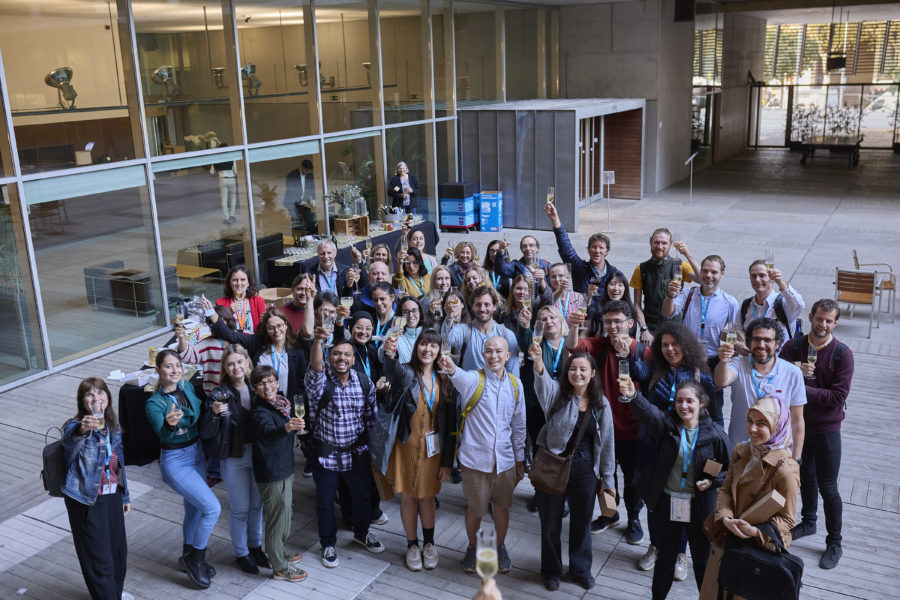
Proteomics, key in current biomedicine
Indeed, this discipline has a wide range of applications in biomedicine. After all, proteomics focuses on the study of the set of proteins in an organism: their location, abundance, modifications, and interactions with other proteins. It should be remembered that proteins are fundamental components of the cell. “They are the building blocks, the switches of cellular functions, and many of them are drug targets – or act as drugs themselves, such as monoclonal antibodies”, exemplifies Eva Borràs, another member of the proteomics service and teacher of the courses. “Therefore, the study of proteins has a very important impact on biomedical and translational research,” she continues.
Proteomics focuses on the study of the set of proteins of an organism: their location, abundance, modifications and interactions with other proteins.
It is also a field in continuous development. “In these last ten years of training we have been adapting to the developments in the field. This year’s agenda has little to do with that of the first year. We have introduced the new technologies that have been appearing and perfected the teaching materials, especially the tutorials, which are very detailed and a great educational tool,” explains Cristina Chiva, another member of the proteomics service in charge of the courses and creation of the materials.
Although it has not been the only change, the emergence of artificial intelligence has also had a significant impact on the field. “A couple of years ago, talking about the PROTrEIN project that we coordinate – a training project in machine learning algorithms and proteomics that will end in 2024 – we commented that machine learning technologies would be commonly used in science. In fact, in the field of data interpretation, we have seen a proliferation of AI-based algorithms. These are very important tools, for example, to predict certain properties of peptides and proteins, and anticipate how they will behave within the mass spectrometer to improve their detection”, explains Sabidó. “But I did not imagine the rapid adoption and expansion that these techniques have had also outside the specialized world of research, and that tools like chatGPT would appear, where anyone can ask a question and obtain a coherent answer!”, confesses the researcher.
These are exciting times, and some of the technologies that will be presented in the proteomics service courses in 10 years are likely unthinkable today. For now, we enjoy the cake as we celebrate these first and successful 10 years.


